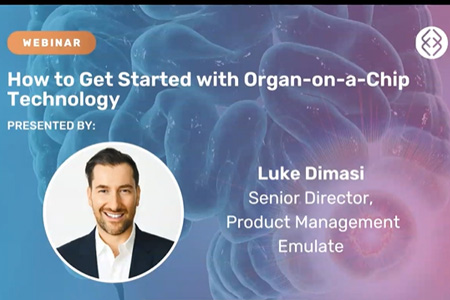Since the early 20th century, scientists have relied on conventional 2D cell culture to study human biology and make significant progress in the field. However, as time has gone on, the limitations of this method have become increasingly apparent. This includes issues such as cancerous cell lines, static microenvironments, and limited cellular complexity. These challenges hinder the ability of 2D cell culture to accurately model human diseases and predict human responses to drug candidates.
In response to these limitations, researchers have developed Organ-Chips as an innovative cell culture technology. These advanced in vitro models provide a more human-relevant platform for disease research and drug discovery and development. By replicating the microenvironment that cells experience within the human body, Organ-Chips offer a more authentic representation of human responses compared to traditional 2D cell culture.
Luke Dimasi, Senior Director of Product Management at Emulate, provides an overview of their Organ-on-a-Chip technology in a webinar. He discusses the advantages of Organ-Chips over 2D cell culture and shares data-driven examples that demonstrate their enhanced physiological relevance. Organ-Chips hold promise as a solution for overcoming the limitations of 2D cell culture and advancing research in human biology.



:quality(75)/cloudfront-us-east-1.images.arcpublishing.com/elcomercio/6K33TQCFEBGQ3JHB35M7HS3SSA.jpg)